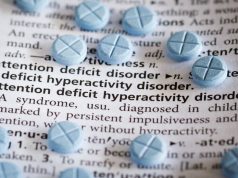The Associated Professional Sleep Societies’ 31st Annual Meeting – SLEEP 2017
The annual meeting of the Associated Professional Sleep Societies (SLEEP 2017) was held from June 3 to 7 in Boston and attracted approximately 5,000 participants from around the world, including clinicians, academicians, allied health professionals, and others interested in sleep disorders. The conference featured scientific sessions and an exhibition hall focused solely on sleep medicine and sleep research.
In one study, Cheri D. Mah, of the University of California San Francisco Human Performance Center, and colleagues presented preliminary sleep and performance findings for professional baseball players. The authors examined whether five days of sleep extension improved several cognitive performance and daytime functioning measures. The investigators assessed cognitive response time, including visual search and cognitive processing, fatigue levels, and daytime sleepiness.
“We found that just five days of sleep extension of just one hour of additional sleep per day provided benefit, including improved visual search response time and cognitive processing response time, decreased fatigue levels, and decreased levels of daytime sleepiness, compared to those who continued habitual sleep patterns,” Mah said. “These findings are preliminary and the population we evaluated were young healthy athletes; however, these findings may have implications for other populations and warrant further investigation in non-athletes.”
In another study, Ghada Bourjeily, M.D., of Brown University and the Women’s Medicine Collaborative at The Miriam Hospital in Providence, R.I., and colleagues found that obstructive sleep apnea (OSA) in pregnant women is associated with an increased risk of congenital anomalies.
“It also is associated with an increased risk of an admission of the baby to the neonatal intensive care unit at birth and a higher risk of requiring resuscitative measures,” Bourjeily said. “We need additional efforts to identify women with OSA and need to study them further to identify whether treatment can impact adverse outcomes that are associated with it.”
Jack D. Edinger, Ph.D., of National Jewish Health in Denver, and colleagues, found that patients who at baseline (prior to treatment) showed objective duration of nighttime sleep of seven hours or more had the greatest chance of remission of their insomnia and depression with cognitive behavioral therapy for insomnia.
“All patients enrolled in the study were on antidepressant medication. We randomized patients to either cognitive behavioral therapy for insomnia or sham treatment,” Edinger said. “We found that patients in the cognitive behavioral therapy arm of the study did well with seven or more hours, in terms of insomnia remission and depression remission.”
The findings “highlight the importance of adequate objective sleep in the recovery from depression and insomnia,” lead principal investigator Rachel Manber, Ph.D., professor of psychiatry and behavioral sciences at the Stanford University Medical Center in California, said in a statement. “The data suggest that short sleep duration may be a risk for refractory depression.”
SLEEP: Helpful Hints From Bed Partner Can Exacerbate Insomnia
MONDAY, June 12, 2017 (HealthDay News) — Supportive and well-meaning behaviors from bed partners of people with insomnia may backfire, as their advice can often contradict treatment recommendations, according to a study presented at the annual meeting of the Associated Professional Sleep Societies (SLEEP 2017), held from June 3 to 7 in Boston.
SLEEP: Prolonged Delayed Eating Linked to Weight Gain
THURSDAY, June 8, 2017 (HealthDay News) — Prolonged delayed eating is associated with weight gain and increases in respiratory quotient, according to a study being presented at the annual meeting of the Associated Professional Sleep Societies (SLEEP 2017), held from June 3 to 7 in Boston.
SLEEP: Weekend Sleep Changes Adversely Affect Health Outcomes
WEDNESDAY, June 7, 2017 (HealthDay News) — “Social jet lag,” a mismatch between the body’s biological clock and actual sleep pattern due to social activities is associated with adverse health effects, according to research presented at the annual meeting of the Associated Professional Sleep Societies (SLEEP 2017), held from June 3 to 7 in Boston.
Copyright © 2017 HealthDay. All rights reserved.







